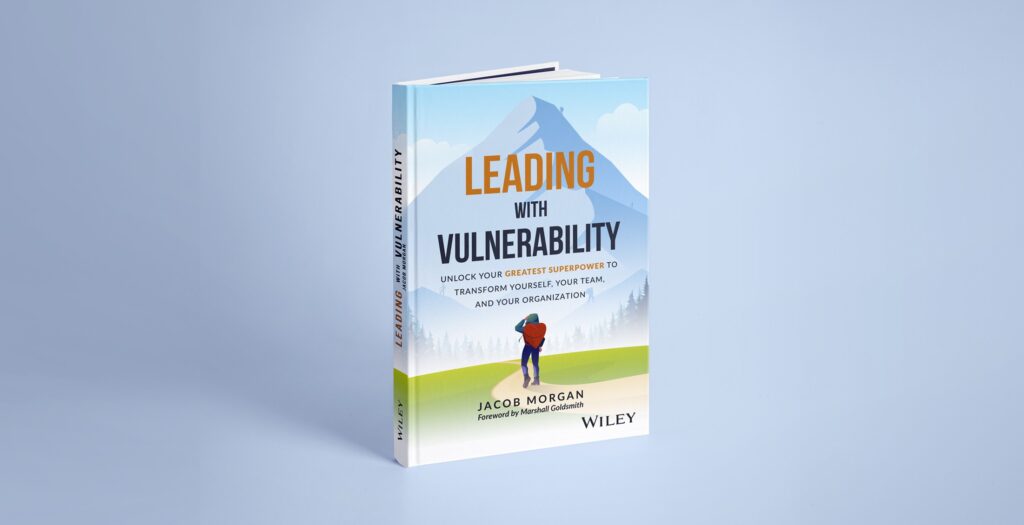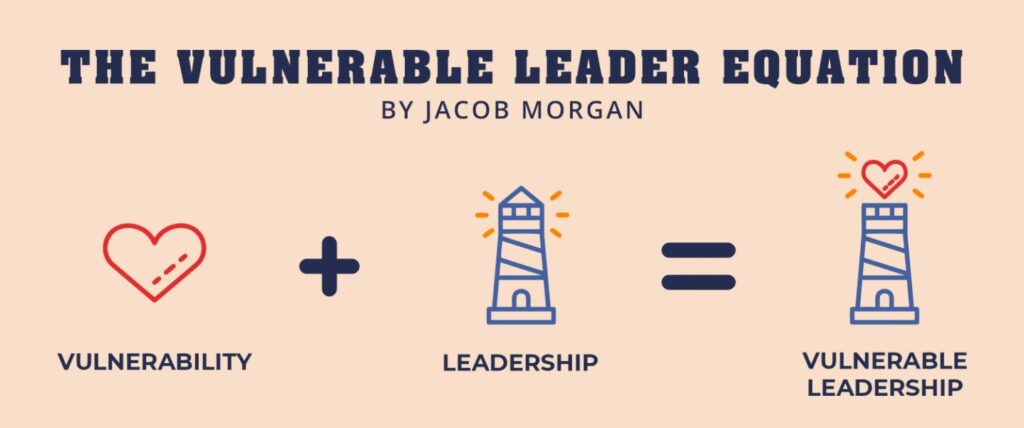The following post first appeared for premium members of Great Leadership On Substack in August if you want to get access to premium articles and content like this when it gets released, you can subscribe here.
…
I talked to over 100 CEOs at companies around the world and surveyed 14,000 employees with DDI to understand vulnerability at work. I put all of my research, findings, stories, and frameworks in my new book Leading with Vulnerability: Unlock Your Greatest Superpower to Transform Yourself, Your Team, and Your Organization
It’s clear why vulnerability is so important in our personal lives because it creates connection, trust, relationships, and simply put, it’s a human thing to do. But what about inside of our organizations where we have a very different dynamic at play?
At work we have a hierarchy, bosses, deadlines, projects, responsibilities and deadlines, teams, schedules, and of course the issue of money. Is vulnerability in that kind of an environment the same as it is in our personal lives?
And what if we take this one step further when we think about leaders. These are people who are actually responsible for the lives of others and the fiscal aspect of a team or business. Is vulnerability for leaders the same as it for everyone else?
I think you can see where I’m going with this and the answer is, NO.
Vulnerability at work is not the same as vulnerability in our personal lives and vulnerability for leaders is not the same as it for everyone else inside of your organization. This became abundantly clear from the over 100 CEOs I interviewed and the 14,000 employees that I surveyed.
One of the things the CEOs told me was that they struggled withe reconciling two seemingly opposing perspectives. On the one hand they were expected to be these strong, visionary, confident, and competent leaders, yet on the other hand their employees wanted them to talk about mistakes, failures, challenges, and struggles.
Is it possible to do both? The answer is yes, but what’s the #1 thing holding leaders (and all of us) back? Ironically enough, a part of the answer is in the question!
In the survey of 14,000 employees I did in partnership with leadership firm DDI, we discovered that by far, the #1 reason why we don’t see more vulnerability at work is because…
People don’t want to be perceived as being weak or incompetent.
Think about that for a moment. Of course if you show up to work every day talking about your failures, challenges, mistakes, struggles, and emotions, then it stands to reason that eventually your peers and leaders are going to look at you say, “maybe you shouldn’t be in this role.”
The solution to this is something that I teased a few weeks ago and it’s called The Vulnerable Leader Equation, which is
Vulnerability + Leadership = Vulnerable Leadership

If you don’t want to be perceived as being incompetent, then you have to demonstrate that you are competent or at least are trying to become more competent. How do you do that?
The example I always give is the following.
Let’s say that you made a mistake on a client project. You go to your leader and say “I’m sorry I made a mistake.” That’s vulnerable, but where’s the leadership? Instead, it’s better to say, “I’m sorry I made a mistake, but here’s what I learned, and here’s what I’m going to do to make sure that mistake doesn’t happen again in the future. This is leading with vulnerability.
The best thing you can do when being vulnerable to avoid the perception of incompetence, is to demonstrate that you are trying to close the gap, move forward, learn, grow, or develop, especially if you are in a leadership role where your actions and words carry more weight.
This is the critical element we keep forgetting inside of our organizations. We are so focused on just being vulnerable that we forget about the second part of the equation and again, leaders especially must be able to demonstrate both.
We also oftentimes use vulnerability as a way to justify incompetence or poor performance, aka, we come up with excuses instead of trying to identify solutions.
My boss doesn’t like me, I don’t know how to do that, I made a mistake, I don’t have the budget, I’m falling behind, the dog ate my homework. Well, what are you going to do about these things?
We’re all human beings and we all have challenges, but we need to show that we are trying to overcome the challenges and that we are taking our growth and development into our own hands.
So the solution for how to avoid being incompetent is found in the question, it’s seems obvious and simple doesn’t it?
The best piece of advice I have for current or aspiring leaders is this. Don’t be vulnerable at work, instead, lead with vulnerability. Combine competence with connection in your interactions with others and watch how it will excel your career and transform who you are as a leader.
If you want to learn more then I encourage you to grab a copy of Leading With Vulnerability which is filled with candid stories, frameworks, and research. It will teach you how to tap into vulnerability the right way to lead through change, drive performance, and unlock the potential of those around you.

Comments